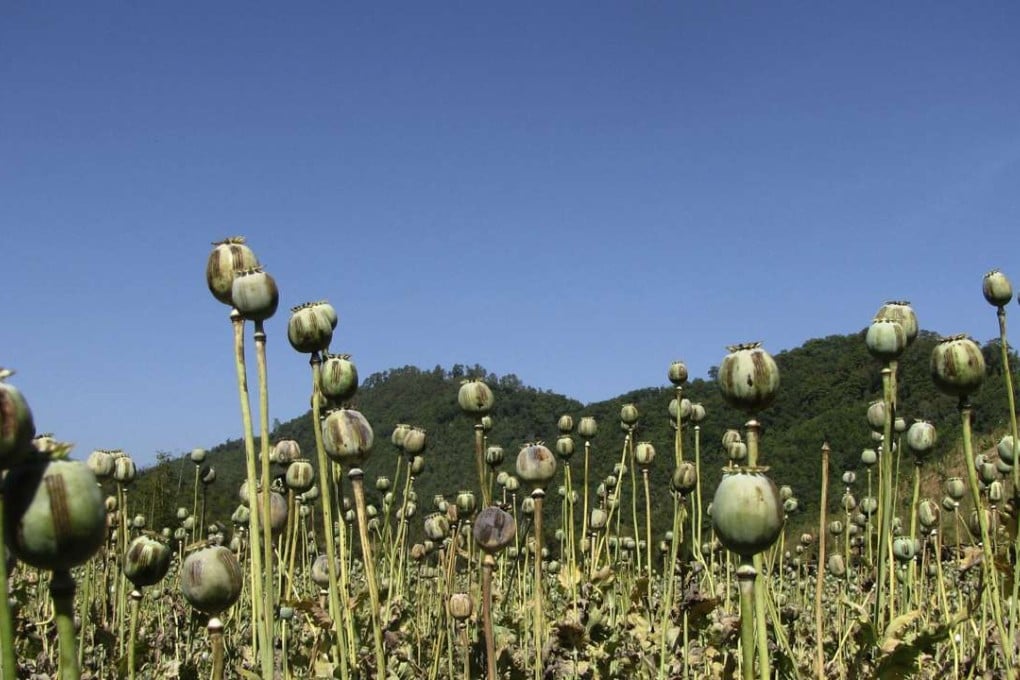Will Myanmar’s economy ever kick its opium habit?
In a country second only to Afghanistan in terms of opium production, poppy fields are here to stay; ‘if we don’t grow it, we don’t eat’, say its impoverished farmers

PACHAKA LO, Shan State, Myanmar – It is the middle of the rainy season in Myanmar, when planting begins in the poppy fields of Shan State. Days can go by before the sun briefly appears, only to be quickly obscured again by grey clouds and the steady rain that helps the crops flourish.
For the farmers of one such crop, it takes a two-hour trek through dense forest to reach their field. Hidden in the mountains, it is accessible only by way of winding, slippery footpaths, near-vertical climbs and the crossing of at least two streams forded only by fallen logs, which they must traverse while carrying baskets, seeds and tools.
The farmers, small and thin, easily navigate the treacherous trails that are part and parcel of the only jobs generations of Shan State villagers have ever known.
One of Pachakalo’s four leaders, U Htan Ngwe, 53, says there are 305 households in his village, 300 of which contain at least one member involved in small-scale poppy farming. “In the remaining five households, they do not farm poppy because they are simply too old,” U Htan Ngwe says.
One of the younger villagers, Nu Kyi, 23, cannot remember when she stopped going to school, only that it was when she was very young. Elders say the average resident is educated to elementary level.
Grassroots activists in Myanmar take anti-drug war into own hands, destroy fields of poppy
